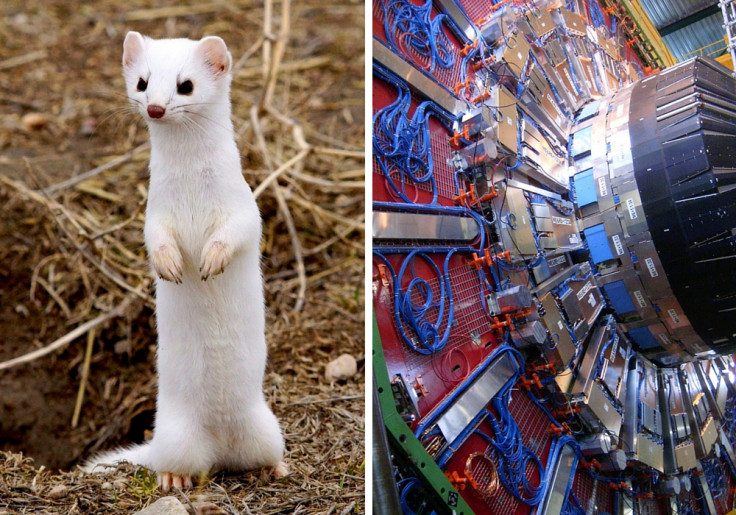Weasel shuts down CERN Large Hadron Collider after being electrocuted on transformer

The CERN Large Hadron Collider particle accelerator has been temporarily shut down after a weasel caused a "severe electrical perturbation" in the early hours of Friday ( 29 April) morning. The LHC at the European Organisation for Nuclear Research (CERN) near Geneva, in Switzerland, is currently offline after a short circuit, caused by the tiny predator.
Unfortunately the weasel died after colliding with a high-voltage transformer and it is thought that it may take a few days to repair the damage. According to CERN, the intrepid animal did not gain access to the huge tunnels where particles have been smashed together to replicate the 'Big Bang' - just the electrical facilities.
The LHC consists of a 27-kilometre (17 mile) ring of superconducting magnets, with a number of accelerating structures to boost the energy of the particles. It cost an estimated $13.2bn (£9bn) and is the world's biggest science experiment, best known for discovering the Higgs Boson, or 'God particle'.
The site is positioned in the Swiss countryside surrounded by wildlife. In 2009, the LHC was shut down by what they believe was a bird, although no remains were found. CERN's report of the latest incident says that the weasel got into a 66kV transformer and as a result, the transformer connections were damaged.
The LHC went through an extensive upgrade between 2013 and 2015 and is now said to be more powerful than ever. In February 2016, CERN's Large Hadron Collider managed to recreate the beginning of the universe, and therefore observe quarks and gluons in the brief moments following the Big Bang. In July 2015, CERN's Large Hadron Collider discovered a pentaquark.
And earlier this month CERN released over 300TB of data from the LHC onto the internet for free to enable anyone to study particle physics and use the data in their own research.
The data is available on the CERN Open Data Portal, which was developed by CERN's IT Department and Scientific Information Service in collaboration with the researchers running the Compact Muon Solenoid (CMS) general-purpose particle physics detector at the LHC.
© Copyright IBTimes 2025. All rights reserved.






















